Previous Graduate Student Research Showcases
The graduate students in the American Studies program at Purdue produce forward-thinking original scholarship and creative productions that push the boundaries of American Studies as a field, as well as that of the various disciplines with which they engage. This page archives the regular showcases of these young scholars and their current interdisciplinary research.
Lilly Marsh
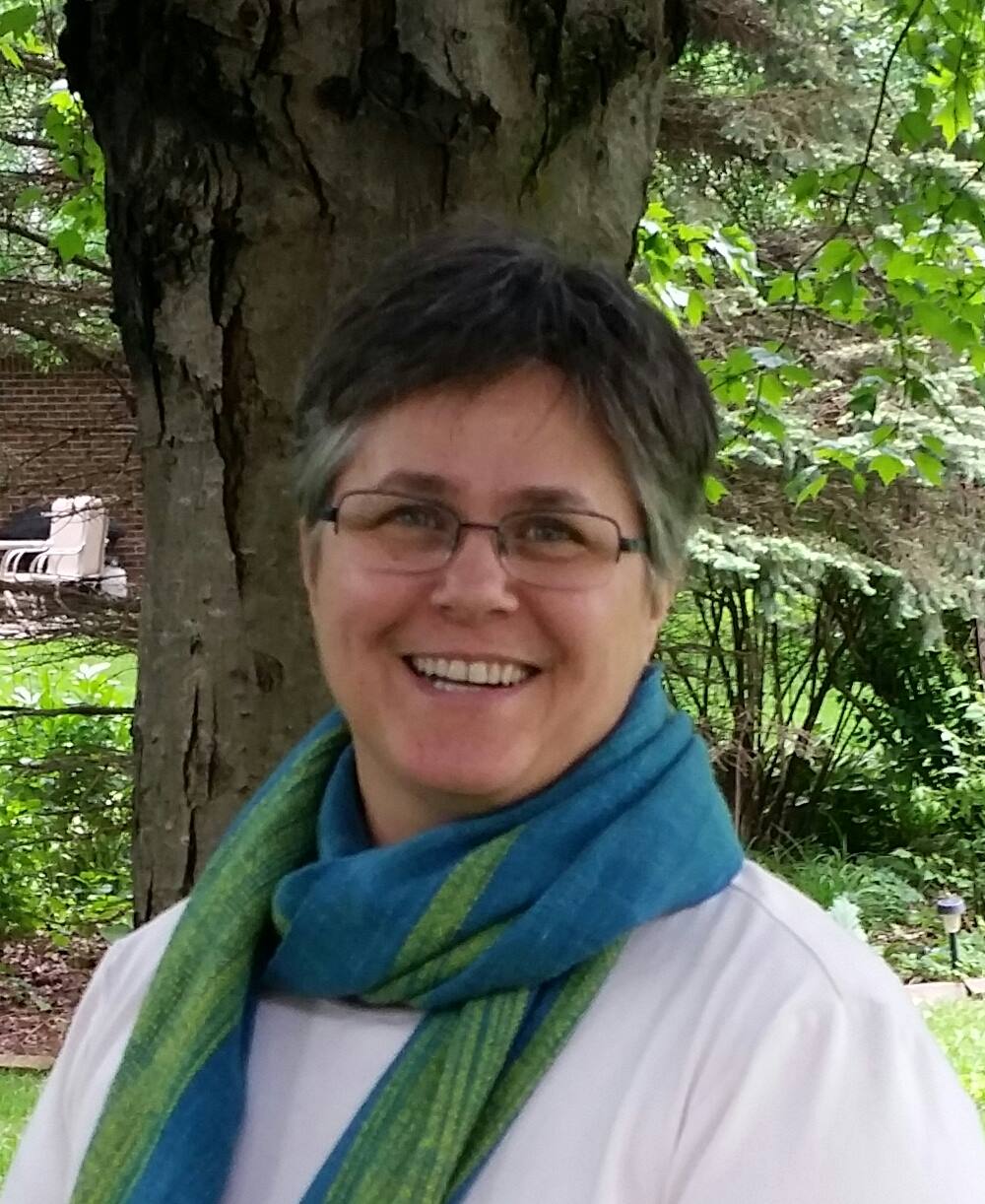
Dr. Lilly Marsh, (PhD'16) is combining creative textile practice with her academic research. Her dissertation, Knitting Rebellion: Elizabeth Zimmerman, Identity and Craftsmanship in Post War America, focuses on the emergence of domestic hand textile work as a creative self-expression and communal engagement, specfically as fostered by the knitting writer-designer Elizabeth Zimmermann. Lilly Marsh Studios, Queensburry NY, designs and weaves blankets, sewing yardage and various wearables out of local and regional wool. Working with the upstate New York fiber supply chain, the Studio connects local wool and alpaca producers with local processing, and supplies women cloth to other artisans, and finished items to consumers/retailers. A founding board member of the Hudson Valley Textile Project, a consortium of growers, processors, artisans, and designers with the watershet of the Hudson River, Lilly Marsh is dedicated to environmentally responsible and ethically produced local cloth and clothing. Her dissertation research is slated for publication in the Fall of 2019 through Bloomsbury Academic as a chapter in Stitching the Self: Exploring the Power of the Needle.
Aria Halliday

Aria S. Halliday, Ph.D. '17 is an Assistant Professor of Africana Feminisms in Women’s Studies at the University of New Hampshire. Aria specializes in the study of contemporary cultural constructions of black girlhood and womanhood in material, visual, and digital culture. She engages broad interdisciplinary interests in sexuality, Black feminism, and radicalism in Black popular culture in the United States and the Caribbean. Her research/reviews are featured in Departures in Critical Qualitative Research and Journal of African American History. She also has articles/book chapters forthcoming in Girlhood Studies (Winter 2018), SOULS (Spring 2019), Palimpsest (Fall 2019), Against a Sharp White Background: Infrastructures of African American Print (University of Wisconsin Press, April 2019). She is also the author of Beyond Barbie: Nicki Minaj, Disney, and Black Women’s Cultural Production (under contract, University of Illinois Press) and the editor of Imagining Worlds for Black Girls: The Black Girlhood Studies Collection (under contract, Canadian Scholars/Women’s Press). She is the founder of the Digital Black Girls project, a digital humanities database that archives representations of Black girls in popular culture. Dr. Halliday has served as the co-chair of the Girls’ and Girls Studies Caucus at the National Women’s Studies Association since 2016.
Ariel Smith

Ariel’s research triangulates Black music, food with Black entrepreneurship. Specifically, she is examining Black owned-food trucks as an embodiment of Hip Hop culture. Ariel traces elements of Hip Hop culture within Black food truck owners’ backgrounds, racial consciousness, aesthetics, products, gender representation, and community development. She is the founder and CEO of the The Food Truck Scholar where she connects with current and aspiring Black food truck owners through interviews and strategizing to create spaces for them to grow and develop.
Maria Mears

Moving into my second year in American Studies, I find myself asking questions about how Americans think about their relationship to history. Who owns the past? Who profits off of interpreting the past? I'm interested in historical narratives that celebrate white supremacy and patriarchy within the United States. I'm looking at museums, living history and/or reenactments, and sports mascot performances as spaces where we interpret and perform a mythical past. These are all areas where we tell stories claiming to represent "us" as "Americans." I'm concerned with who is represented in that "us" and who decides what stories are included in these places and events. Who are these spaces for? Why do we feel the need to perform or relive "historical" events?
Esmé Barniskis

I’m starting my second year in American Studies, and I’ve found that my recurring thoughts coalesce around questions of belonging, materiality, and everyday life. My specific project now, just begun, looks at nonproductive, marginal, interstitial urban spaces that complicate our binary understandings of urban and rural. These spaces also ask how people, plants, and non-human animals can lay claim to these potential sites of public space through everyday actions and the material traces left behind. I’m invested in critiquing the notion of a gap in the built environment as inherently a “void” that serves no purpose, and in writing a narrative of place that holistically looks at the material reality of daily life as it transects these marginal spaces.
Paige Frazier
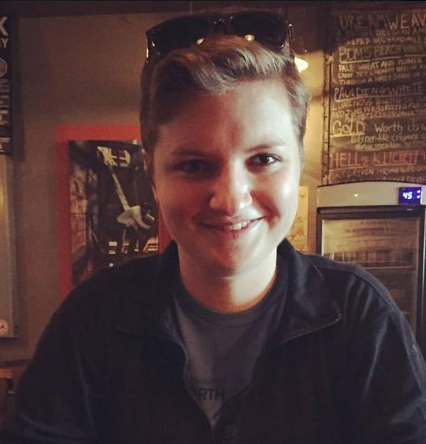
Paige Frazier is a 3rd year Ph.D. student in American Studies working in the intersections of Queer Theory and Food Studies. Specifically she is interested in queer positionality or subjectivity and how this relates to vegan and vegetarian food cultures in the 21st century. Why, for instance, do so many vegans and vegetarians also identify as queer, and vice versa? Paige examines LGBTQ+ archives, literary texts, and cultural artifacts in order to answer this and other related questions.
Yu Dou

My project focuses upon Chinese students at Purdue in the 1900s. I perceive them not merely as ambassadors from China or messengers of knowledge from the U.S. They are, in fact, a fascinating yet overlooked entry point to uncover Chinese migrants’ experiences in the U.S. Midwest. Their experiences, I would argue, help us envisage the possibility of “inclusion” during the Chinese Exclusion era (1882-1943). They help us understand race relations in the U.S., the seeking of a Chinese modernity, and the diplomatic relationship between the U.S. and China in the early 20th century when global imperialism and colonialism were dominant..
Annagul Yaryyeva
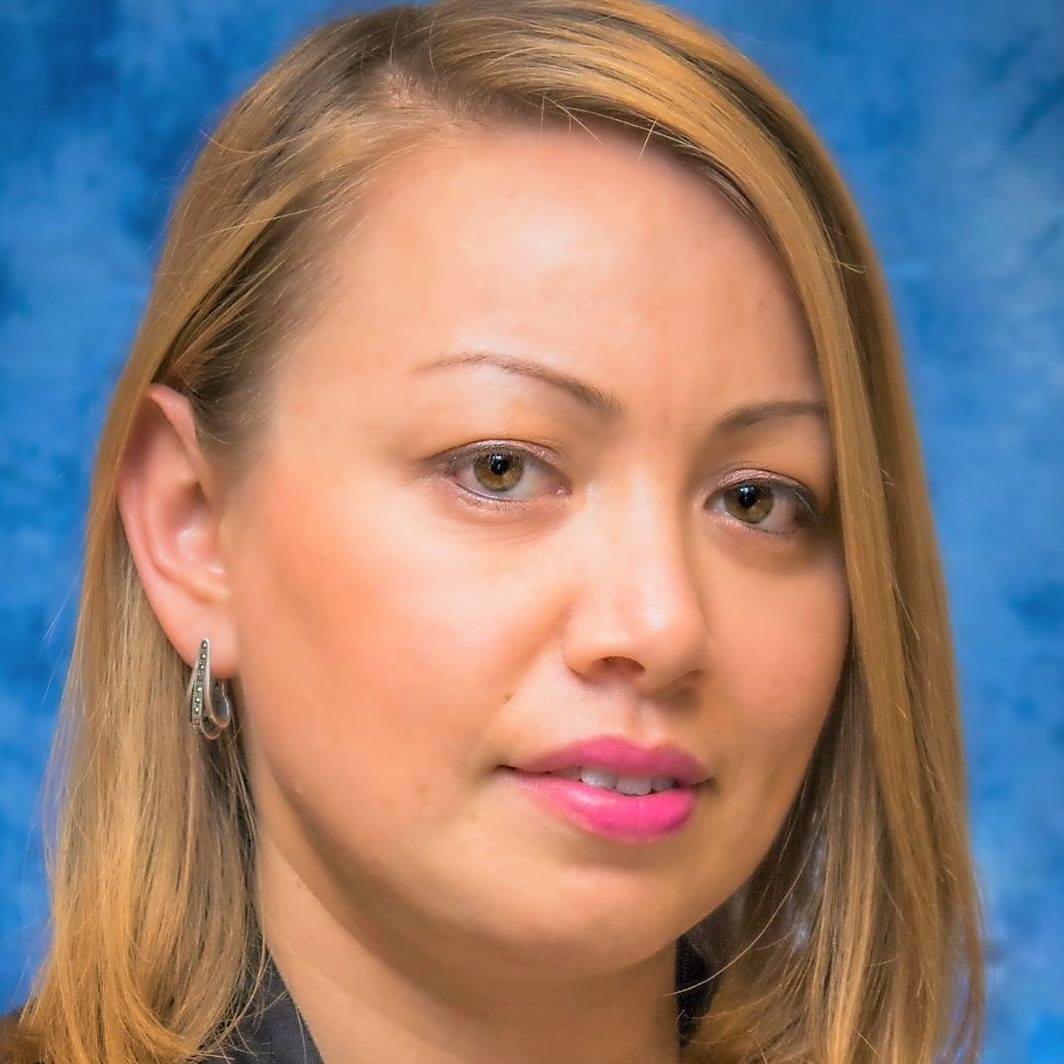
My research focuses on the impact of U.S.-Russia relations since 2014 on Russian transnational immigrants and migrants in the U.S. The following are the questions asked by my research: What are the ways in which U.S.-Russia relations impact Russian immigrants’ daily realities in the U.S.? In what ways do the growing tensions between Russia and the U.S. impact immigrant ties to their country of origin? Most importantly, how do Russian immigrants react to and engage with the growing hostility between their country of origin and destination? By looking into Russian immigrants’ daily experiences through ethnographic research methods, my research project seeks to bring to light the implications of the global tensions on people’s individual lives.
Megan Williams
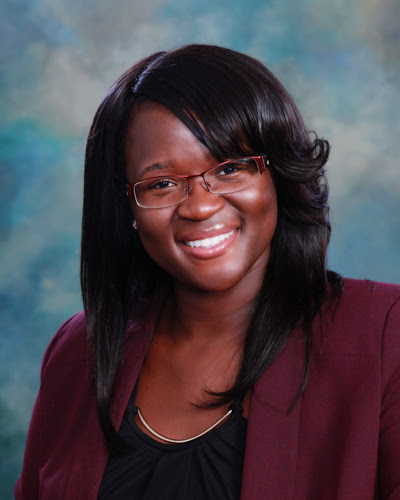
My current research project is an inquiry into the culture of pound cake in Black women's cookbooks, fiction, and illustration. Specifically, I analyze the literal and figurative centerdness of pound cake in sexually and/or romantically heightened moments; the parallel positioning of pound cake and Black female bodies in such moments; and the notions of desire, pleasure, eroticism, sex and sexuality entangled in these parallel positioning. Such an analysis allows me to question the role of pound cake in shaping erotic desire and sexual pleasure for Black women and conclude that pound cake is both a symbol and tool for Black female sexual agency.
Kadari Taylor-Watson
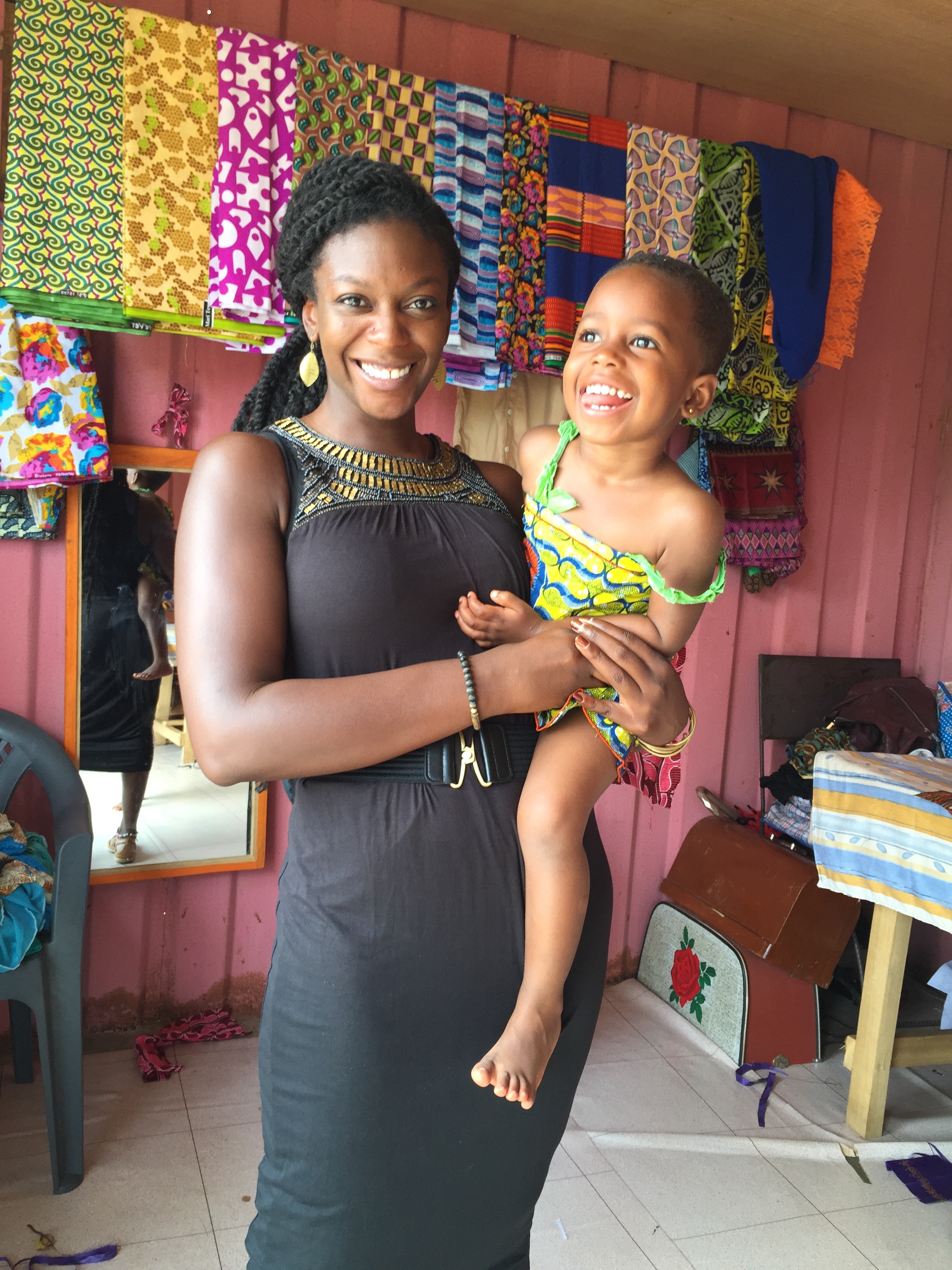
My graduate research uses African printed textiles as a lens to understand the transnational relationship between Black women in the African diaspora. Specifically, I draw on qualitative methods to delve deep into the lives of Black women designers and consumers, to reveal the contemporary symbolic meanings and uses of African print, for African American women and Ghanaian women. By putting these two groups of Black women in conversation, my project seeks to illuminate, how design and consumption, work together to redefine global Black womanhood. This project also considers seriously the role of the digital as a space for Black women to assert their individual and collective identity on a international level. Furthermore by concluding my work using auto ethnography as a developing fashion and textile designer, I aim to critically engage questions of authenticity and cultural appropriation and subsequently find my own voice within the global African print market.
Ryan Schnurr
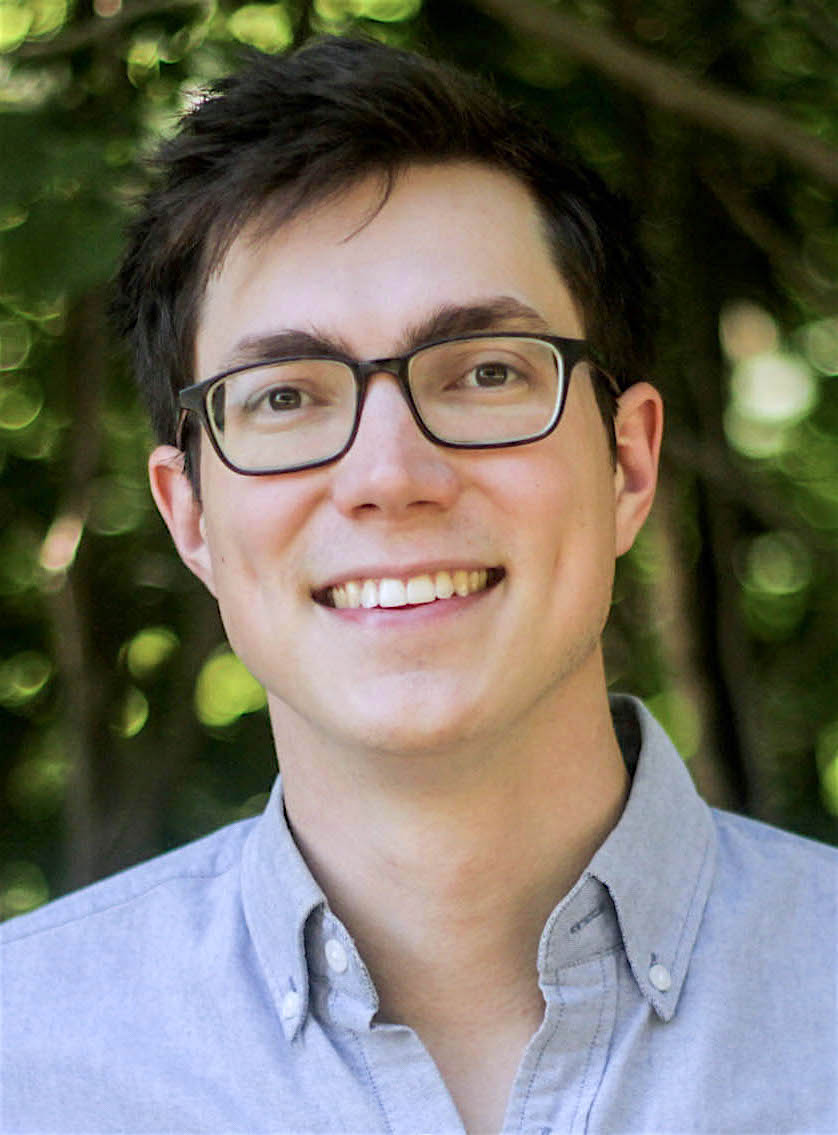
My work is at the intersection of environmental literature/writing, documentary studies, and human interaction with/experiences of built and natural environments. My first book, In The Watershed: A Journey Down the Maumee River (Belt, 2017) explored the history, culture and ecology of the Maumee River and its watershed, blending fieldwork, historical research, and first-person narrative. Currently, I am working on two distinct projects: an analysis of oil culture in the work of Midwestern writer and documentarian Gene Stratton Porter, and a documentary project on prison towns in Indiana.
Jennifer Sdunzik
Race relations continue to be tense and fraught in U.S. society. However, we are yet to develop an understanding of how the contests over who belongs in a community have evolved in the twentieth and twenty-first centuries. My work provides a historical explanation for the construction of whites-only towns, the cultural supports for which are, sometimes inadvertently, reinforced into the present. It investigates how the influx of black Americans into previously "white spaces" in Indiana as a result of the Great Migration elecited violence from white residents to keep their towns segregated. My project also explores the legacy of exclusionary policies and practices on these communities today, in an attempt to illustrate how the histories of towns, people, and migration pathways contribute to our contemporary understanding of race in the Midwest. Based on archival and ethnographic research, my dissertation highlights the relationship between structural inequalities, ideological imperatives, and belonging in Indiana. Thus, it locates the Midwest as a critical site of inquiry and addresses how space, race, and policies intersect in ways that have historically reinforced geographical borders for racial minorities.
Pamela Sari
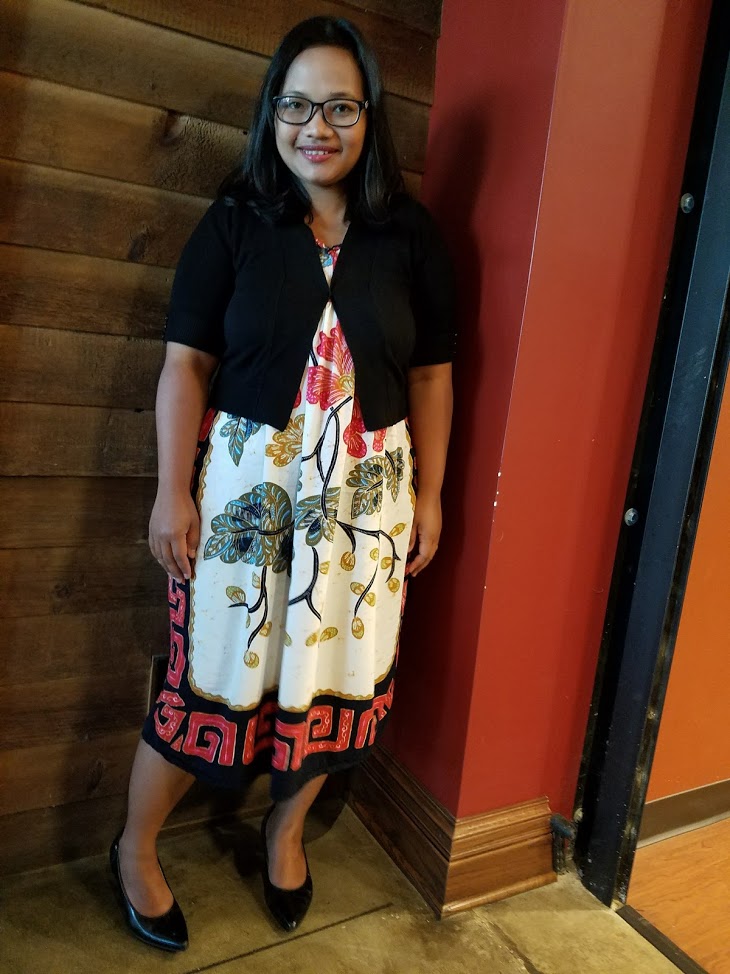
My work examines transnational networks between an Indonesian Pentecostal, Charismatic megachurch and Christian institutions in the United States. It analyzes the malleability of Charismatic religious values as they travel abroad (and back) and intersect with local politics, socioeconomic conditions, and cultures. My work highlights the roles of Indonesian immigrant congregations, particularly in Southern California, in this history of religious connections across borders. My research also highlights the roles of women and youth leaders in bringing a new level of intersection between religious values, entrepreneurship, and the arts.
Keturah Nix
My dissertation traces the links between legacy and the commemoration of that legacy. One has to do with the active work of the individual/institution, and the other is connected to how others interpret and memorialize that work. Using the posthumous commemoration of 20th Century African American educator and entrepreneur Dr. Booker T. Washington, I examine the generational connections of Washington's legacy through the lens of three historical periods: the New Negro Movement, the Civil Rights Movement, and the BlackLivesMatter Movement. Defining what I term "Black Hustle Theory," I argue that for Washington, hustle was used as a mode of operation and existence in a racially adversarial system of money, power, and authority. I attempt to reclaim hustle and move it forward from its gang and drug associations in black popular culture, to contextualize how African Americans have traditionally used hustle to gain access to networks of power. I argue that the commemoration surrounding Washington is a response to his diligent hustle of educational and economic justice for blacks.
Christopher Munt
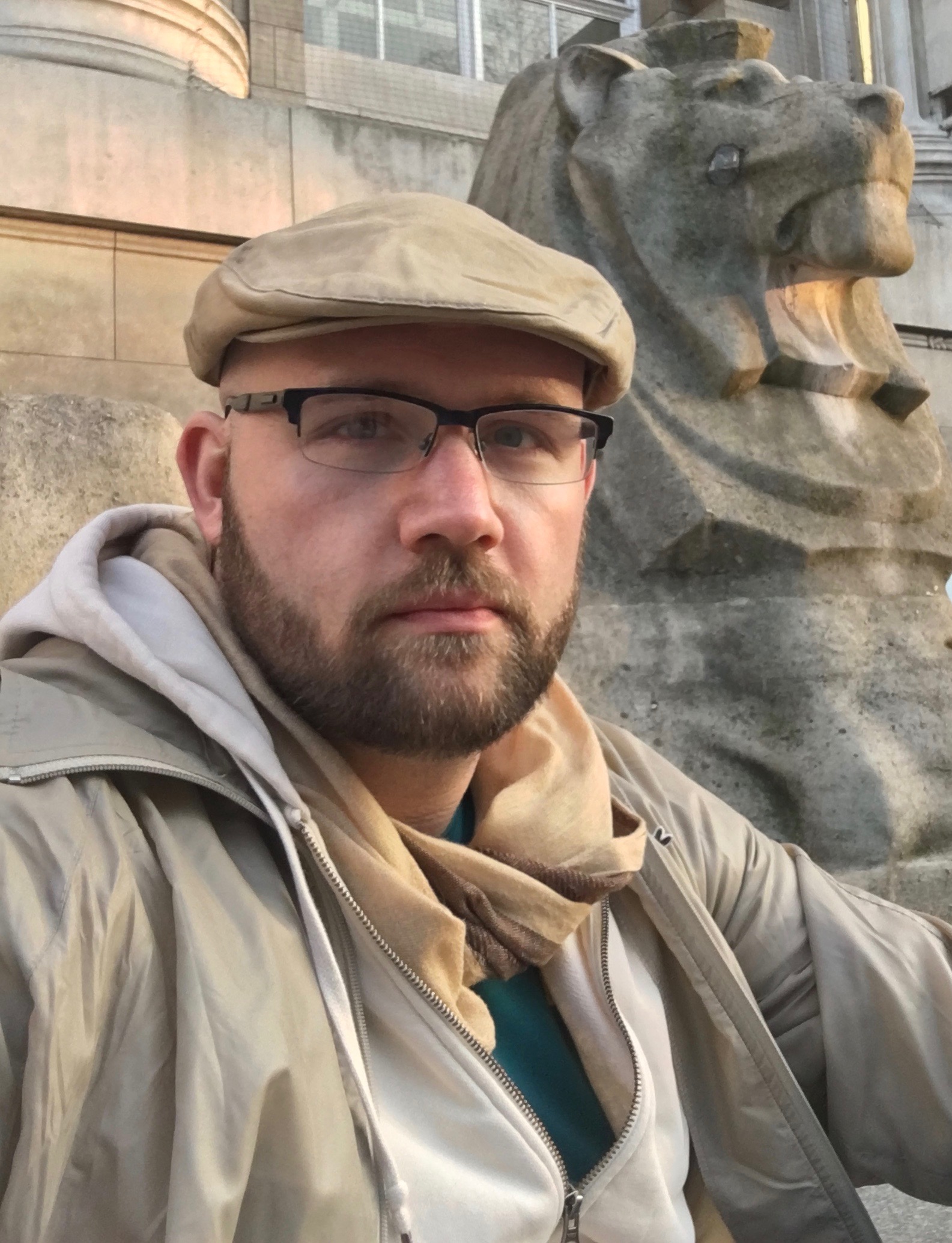
My research examines the evolution of sexual practices between men by focusing on one location within the urban sexual landscape: gay bathhouses. Although sexual encounters occurred in the so-called "ordinary bathhouses" of the late-nineteeth century, these liaisons posed numerous social and legal risks. By the early twentieth century, however, some establishments began to cater explicitly to men seeking sexual encounters with other men, offering a greater degree of privacy and protection. Taking an interdisciplinary approach, I blend methodological elements from textual analysis, historiography, and ethnography to trace how these establishments developed and how they change physically over time, as well as how those changes related to shifts in the sexual practies taking place within them.
Kera Lovell
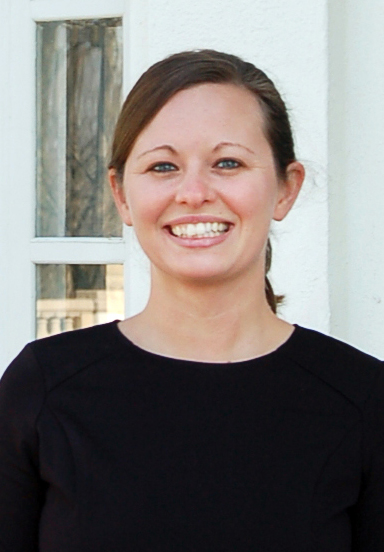
My dissertation, Radical Manifest Destiny: Mapping Power in Urban Space in the Age of Protest, 1968-1979, traces the transnational movement of insurgent park creation as a method of portest against urban renewal and police brutality. Having conducted archival research across seven states, I have broken ground by documenting more than four dozen People's Parks created after the first in Berkeley, CA in 1968. Utilizing a wide range of archival collections and oral history interviews, I argue that as practices of experimental community-based urban design, insurgent place-making initiatives--such as the illegal takeover of vacant lots and the anarchist creation of free public green spaces called "People's Parks" --at times, facilitated cross-cultural coalitions that transcended ethnic, racial, and national borders. Linking these spaces together, my dissertation focuses on the social and material culture of these projects, including shared meals, manual labor, and print media, as a lens into how activities understood the connections between identity, power, and space within the late-Cold War era. Fore more, see www.KeraLovell.com
Michele Lee
Currently my research focuses on how the display and participation of Asian/American portraiture in the form of performance, digital media, and painting in (inter)national galleries reveal the imperial agendas of such exhibitionary spaces. I ask, what are the effects of an artisit's work in distinct national museums on the art object, the community in which it exhibits in, and the understanding of Asian/American subjectivity? In what ways do these portraits, whose queer, diasporic, and subcultural inflections flounder in the exhibitionary space, reveal treacherous curatorial practice? And how do portraits that are embodied via virtual and augmented reality transcend spatial and ideological boundaries? Ultimately combining visual culture, museum studies, and performance studies, I read the works by and of Asian/Americans as performative agents that contest and complicate Asian/American subjectivity, the rules of citizenry (local and global), and hegemonic modes of displaying within museum spaces that elicit national narratives.
Hana Lee
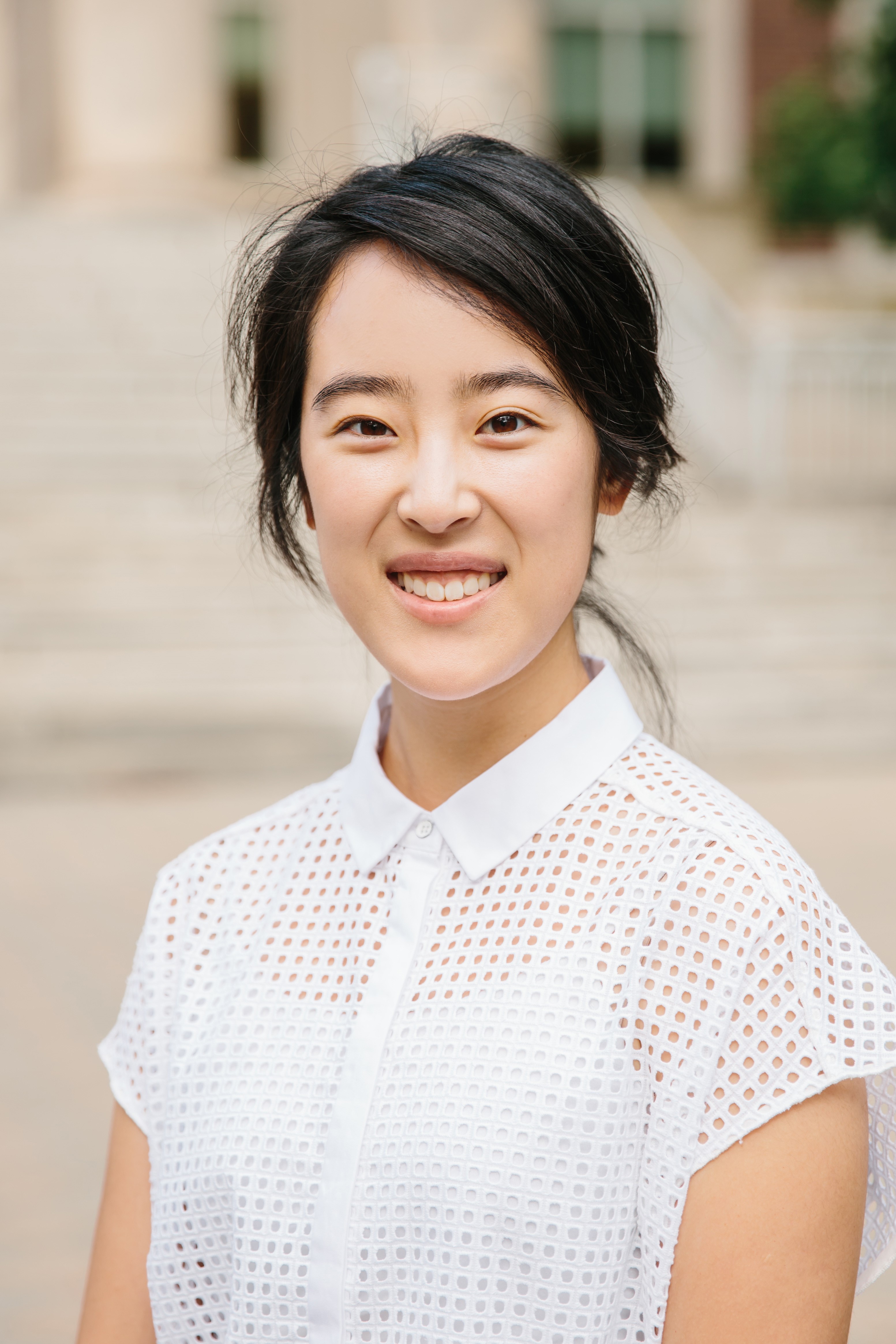
What is the relationship between religious and ethnic identity? How do place, environment, and context affect these identity formations? These are the two critical questions I aim to answer in my dissertation project. The lens through which I will answer these questions is through the experiences of second generation Korean American Christians who grew up in the space of the Midwest. In order to learn about these identity formations and hear from the individuals themselves, I have chosen the enthnographic methodology of in-depth interviewing. It is my hope that this project will challenge, offer encouragement, and lead to care.
Jaimalene Hough
 In my dissertation, Virgin Land: National Identity, Sexual Citizenship and Young Women in the Contemporary United States, I analyze the rhetoric of virginity in medical, legal, and popular culture documents during the World War II era (1940-1945) and the early War on Terror (2001-2008). This juxtaposition allows the consistencies in the use of virginity discourses in the creation and maintenance of patriarchal state power at home and abroad to become more visible. Further, understanding the connections between virginity and patriarchal power allows for the imagining of alternative, and even queer, formulations of power and community.
In my dissertation, Virgin Land: National Identity, Sexual Citizenship and Young Women in the Contemporary United States, I analyze the rhetoric of virginity in medical, legal, and popular culture documents during the World War II era (1940-1945) and the early War on Terror (2001-2008). This juxtaposition allows the consistencies in the use of virginity discourses in the creation and maintenance of patriarchal state power at home and abroad to become more visible. Further, understanding the connections between virginity and patriarchal power allows for the imagining of alternative, and even queer, formulations of power and community.
Stephen Horrocks
 My research explores the social and cultural experience of insulin pump use by people with Type 1 Diabetes. Use of these devices simultaneously alters users’ bodies and identities as treatment technologies become integrated as actors within users’ biological and social systems. People with Type 1 Diabetes and their insulin pumps become newly visible and legible to themselves, the people around them, and cultural systems of power in new ways through multi-faceted human-technological relationships. While that new technolegibility of the body provides unprecedented control over the symptoms and side-effects of the disease, I contend, it also brings with it unforeseen social consequences that alter people’s everyday life and practices. Uncovering these sites of techno-medicalized meaning creation destabilizes the assumptions at the center of dominant cultural definitions of diabetes, placing technology at the heart of Diabetic identity construction. Understanding how technoscience, identity, and bodies intertwine in the context of the contemporary United States highlights how that process structures understandings of ourselves and others within modern biomedicalized cultural paradigms.
My research explores the social and cultural experience of insulin pump use by people with Type 1 Diabetes. Use of these devices simultaneously alters users’ bodies and identities as treatment technologies become integrated as actors within users’ biological and social systems. People with Type 1 Diabetes and their insulin pumps become newly visible and legible to themselves, the people around them, and cultural systems of power in new ways through multi-faceted human-technological relationships. While that new technolegibility of the body provides unprecedented control over the symptoms and side-effects of the disease, I contend, it also brings with it unforeseen social consequences that alter people’s everyday life and practices. Uncovering these sites of techno-medicalized meaning creation destabilizes the assumptions at the center of dominant cultural definitions of diabetes, placing technology at the heart of Diabetic identity construction. Understanding how technoscience, identity, and bodies intertwine in the context of the contemporary United States highlights how that process structures understandings of ourselves and others within modern biomedicalized cultural paradigms.
Jonathan Freeman
 My research examines the role that African American recording artists played in the global fight against South Africa's apartheid regime. While the study of the anti Apartheid movement has been well documented, no study has attempted a transnational history of the role of African American recording artists in the movement from 1977-1987. Using Sun city- a segregated Las Vegas style luxury resport, as a case study, I look at performance, music, and grassroots movements as a form of cutlural resistance again the Nationalist Party government to end Apartheid. I argue that the disaporic solidarity enacted by prominent African American recording artists was fundamental in the dismantling of Apartheid in South Africa.
My research examines the role that African American recording artists played in the global fight against South Africa's apartheid regime. While the study of the anti Apartheid movement has been well documented, no study has attempted a transnational history of the role of African American recording artists in the movement from 1977-1987. Using Sun city- a segregated Las Vegas style luxury resport, as a case study, I look at performance, music, and grassroots movements as a form of cutlural resistance again the Nationalist Party government to end Apartheid. I argue that the disaporic solidarity enacted by prominent African American recording artists was fundamental in the dismantling of Apartheid in South Africa.
Juanita Crider
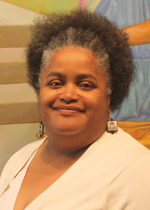
My dissertation uses contemporary black literature, film and television to explore and answer the following questions: What types of images of the ageing black woman are created in cultural texts, especially in contemporary literature, film and television? When the stereotypes of age intersect with the most common stereotypes for the portrayal of black women how are elder black women further marginalized? How can womanism be used to offer a critical analysis of the hegemony of youth, and aid in images of elder black women becoming more visible while also impacting the social cultural realities of Black women in their later years.
Michelle Carreon
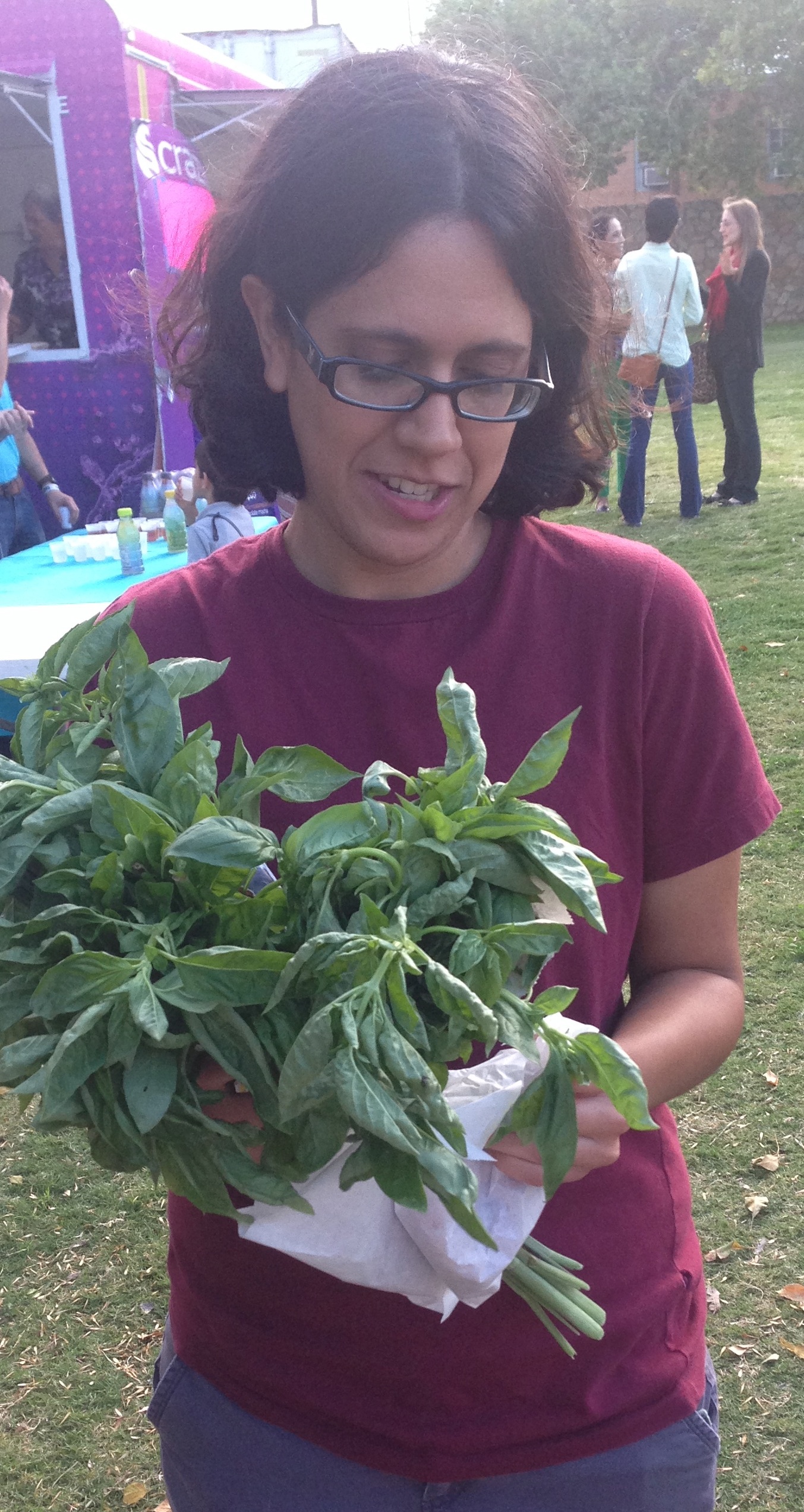 My dissertation examines the roles of economic citizenship and conceptualizations of care within potential expressions of a U.S.-based solidarity economy, which is grounded in principles of solidarity, sustainability, equity in all dimensions, participatory democracy, and pluralism. Highlighting the effects of race, ethnicity, class, gender, and political and cultural histories in a specific context, my project examines a historical settlement house and a contemporary women-led community organization in El Paso, Texas. Utilizing ethonographic methos, as well as archival research, I aim to provide important implications for broadening a conceptualization of a "solidary economy," especially within the context of the U.S.-Mexico border.
My dissertation examines the roles of economic citizenship and conceptualizations of care within potential expressions of a U.S.-based solidarity economy, which is grounded in principles of solidarity, sustainability, equity in all dimensions, participatory democracy, and pluralism. Highlighting the effects of race, ethnicity, class, gender, and political and cultural histories in a specific context, my project examines a historical settlement house and a contemporary women-led community organization in El Paso, Texas. Utilizing ethonographic methos, as well as archival research, I aim to provide important implications for broadening a conceptualization of a "solidary economy," especially within the context of the U.S.-Mexico border.
Rachel Bonini
My current research investigates the intersections between race, gender, popular culture, tourism, and US empire, focusing primarily on Disney’s representations of Hawai’i. Through its parks and films, Disney constructs a model for ideal tourism of its narratives and spaces that I argue supports and enforces contemporary U.S. imperial tourism by normalizing U.S. empire in its version of tourism. Using Disney’s representations of Hawai’i as a case study, this project interrogates the ways in which Disney contributes to contemporary U.S. empire by providing a platform that encourages white, middle-class mainlanders to participate in and practice imperial tourism, journeying from Lilo & Stitch to the Polynesian Village Resort Hotel.
Emma Bertolaet
My research focus is the anthropology of midwifery, and my dissertation examines the pursuit of legal recognition by non-nurse midwifery in the state of Alabama. I am particularly interested in how theories of intersectionality, economic citizenship, and structural violence impact midwives ability to provide care, and womens accessibility to care. My dissertation is informed by a mixed methodology of participant observation and statistical analysis in order to provide evidence for effective change and improvement to maternal and reproductive healthcare in Alabama. I also consider how women supplement their maternal and reproductive healthcare with limited care options.
Lisa Beringer
 Beginning with Ralph Ellison’s Invisible Man, my dissertation traces a theoretical approach I am calling “The Invisible Man Paradox.” I argue that black satire creates an ongoing resistance to invisibility resulting from the social acceptance of racial stereotypes that marginalize blackness and protect whiteness. I explore how powerlessness, voicelessness and social death are often times direct results of invisibility creating a monolithic definition of black identity. Furthermore, I explore how black satire supplies counter narratives that place black individuals within social history, thereby establishing space for black humanity (in contrast to whiteness) within the American social landscape. Finally, I examine ways in which black satire, as a form for social protest, has survived and evolved over time providing a constant and persistent resistance to racism and its dehumanizing effects.
Beginning with Ralph Ellison’s Invisible Man, my dissertation traces a theoretical approach I am calling “The Invisible Man Paradox.” I argue that black satire creates an ongoing resistance to invisibility resulting from the social acceptance of racial stereotypes that marginalize blackness and protect whiteness. I explore how powerlessness, voicelessness and social death are often times direct results of invisibility creating a monolithic definition of black identity. Furthermore, I explore how black satire supplies counter narratives that place black individuals within social history, thereby establishing space for black humanity (in contrast to whiteness) within the American social landscape. Finally, I examine ways in which black satire, as a form for social protest, has survived and evolved over time providing a constant and persistent resistance to racism and its dehumanizing effects.
Paula D. Ashe
 The Sister Cyborg Project (SCP) is an interdisciplinary, multi-modal examination of the discursive strategies employed by black feminists via digital technologies from 2004 to 2014. This project interrogates black feminist social networking exchanges, digital cultural productions, and web-based political mobilizations on behalf of black feminist agendas and agency by considering three digital events: folksinger Ani DiFranco’s ‘Righteous Retreat’, Mikki Kendall’s #solidarityisforwhitewomen Twitter campaign, and The Onion’s incendiary Tweet at actress Quvenzhane Wallis. The SCP considers the rallying efforts of black feminists around issues of space, sisterhood, and self.
The Sister Cyborg Project (SCP) is an interdisciplinary, multi-modal examination of the discursive strategies employed by black feminists via digital technologies from 2004 to 2014. This project interrogates black feminist social networking exchanges, digital cultural productions, and web-based political mobilizations on behalf of black feminist agendas and agency by considering three digital events: folksinger Ani DiFranco’s ‘Righteous Retreat’, Mikki Kendall’s #solidarityisforwhitewomen Twitter campaign, and The Onion’s incendiary Tweet at actress Quvenzhane Wallis. The SCP considers the rallying efforts of black feminists around issues of space, sisterhood, and self.
Katje Armentrout
My research studies the migration patterns of the hipster and their commodification of the rural. More specifically, I look at how the contemporary counterculture is moving away from their familiar urban environment and immersing into the pastoral landscape, thereby becoming farmers. Consequently, I also focus on how millennials seek authenticity by appropriating the material culture of the traditional family farm into their own identities. By studying this socially constructed movement, my work challenges the fluid relationship between the urban and the rural as a reaction to the modern, as well as a revolt against industrial failure in metropolitan areas.
Sascha Angermann
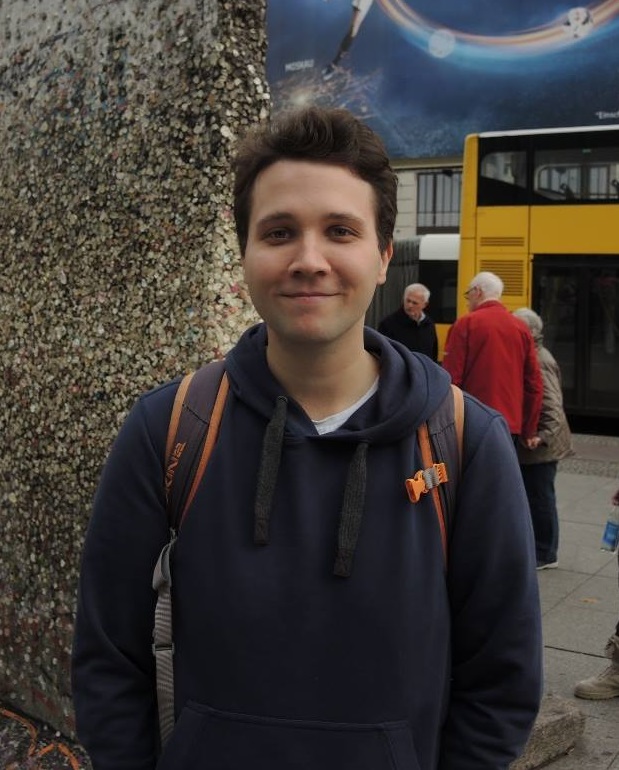 My research examines the ideological underpinnings of transgender representation in popular culture, what these portrayals communicate to audiences, and how this affects trans people on a systemic level and in their everyday lives. I am looking at the ways in which mass media obsesses over trans women like Caitlyn Jenner while obscuring the experiences of trans people via sensationalist conversations of medicalization, pathologization, and fetishization. I am interested in examining the historical conditions for trans representation(s) to understand how systems of oppression have fostered conditions of injustice, especially for those who are not straight, cisgender, middle class, male, and white.
My research examines the ideological underpinnings of transgender representation in popular culture, what these portrayals communicate to audiences, and how this affects trans people on a systemic level and in their everyday lives. I am looking at the ways in which mass media obsesses over trans women like Caitlyn Jenner while obscuring the experiences of trans people via sensationalist conversations of medicalization, pathologization, and fetishization. I am interested in examining the historical conditions for trans representation(s) to understand how systems of oppression have fostered conditions of injustice, especially for those who are not straight, cisgender, middle class, male, and white.
Jolivette Anderson-Douoning
My research is Race, Space and Place in that it explores the psyche of African Americans in the United States and how they had to negotiate their existence according to the racial history of the U.S. that is founded and built upon extreme contradictions of theoretical freedom and applied bondage. It defines and describes the making of the Purdue Black Cultural Center as a place where Black cultures from different Black neighborhoods throughout the nation would meet to demand ‘place’ and ‘space’ for Black identities to develop at Predominantly White Institutions (PWIs),during —and leading up to- the Second Reconstruction (1945 to 1973).
My writings give a cultural history of Black Americans, and it is best described as documenting a Black Cultural Continuum in the United States during the time the Purdue Black Cultural Center was founded (1969) and under the leadership of Director Emeritus, Antonio Zamaora (1973 to 1995), the Antonio Zamora years.
My research explores the relevancy of BCCs and the working title of my dissertation is 'The Antonio Zamora Years, The Creation of Black Cultural Centers as Safe Spaces to Teach, Learn and Talk Race: From Hidden Curriculum to Public Pedagogy when Culture Migrates from Black Communities to White Campuses'. My research maps the cultural education from Black neighborhoods (using handwritten journals, obituaries, and other primary documents) to education at Black Cultural Centers (using flyers, posters, recordings of speeches, annual calendars, and the administrative papers so that these documents help display the evolution of BCC Operations for engaging with students, upper level administration and the public). Both places 'Black neighborhoods' and 'Black Cultural Centers' developed spaces that offer 'formative' educational experiences that support and reinforce 'formal' experiences in the classroom.
Stephanie A. Allen

My dissertation, “Marginal and Forbidden: Black Lesbians, Contemporary American Culture, and the Politics of Representation," argues that Black lesbian literature and film are a direct response to the marginalization and exclusion of Black lesbians and their cultural texts in literary, scholarly, and public discourses. I argue that Black lesbian literature and other cultural products mirror Black lesbians’ social, political, and cultural statuses, in that they are marginalized and often excluded from both Black and LGBTQ communities. I contend that Black lesbian cultural texts have two main goals: 1) to lay bare the experiences of Black lesbians in a raced, gendered, classed, and homophobic society; and 2) to challenge the notion that the claiming of a Black lesbian identity is “marginal and forbidden.”
See Stephanie's directory page for more info.
Aria Halliday
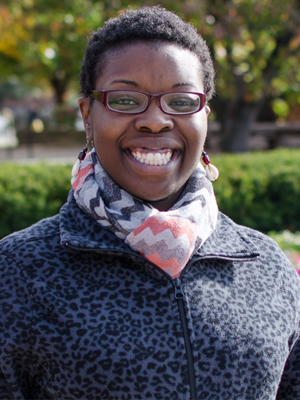
Aria Halliday, a PhD student in American Studies, plans to follow her research question and follow it wherever it takes her. A student interested in the burgeoning field of Black Girl Studies (a field that has roots in education and psychology), Aria is researching the cultural representations of young black girls in books, movies, plays, and other arenas. “American Studies has taught me to always question, and to always be critical,” she explains. A graduate of Davidson College, Aria was drawn to Purdue’s American Studies program because it allows her to look at a problem from various viewpoints, Instead of being bound by one discipline. “Susan Curtis contacted me because she knew about the thesis I was working on for my undergraduate degree In speaking with Professor Curtis, I realized that American Studies extends the cultural lens beyond what can traditionally be studied,” Aria explains. “In American Studies I’m not bound by disciplinary methodologies.” Although as a young girl she did not have a Barbie Doll herself, Aria is exploring how dolls and Disney Princesses relate to young black girls as they are developing their identities.
